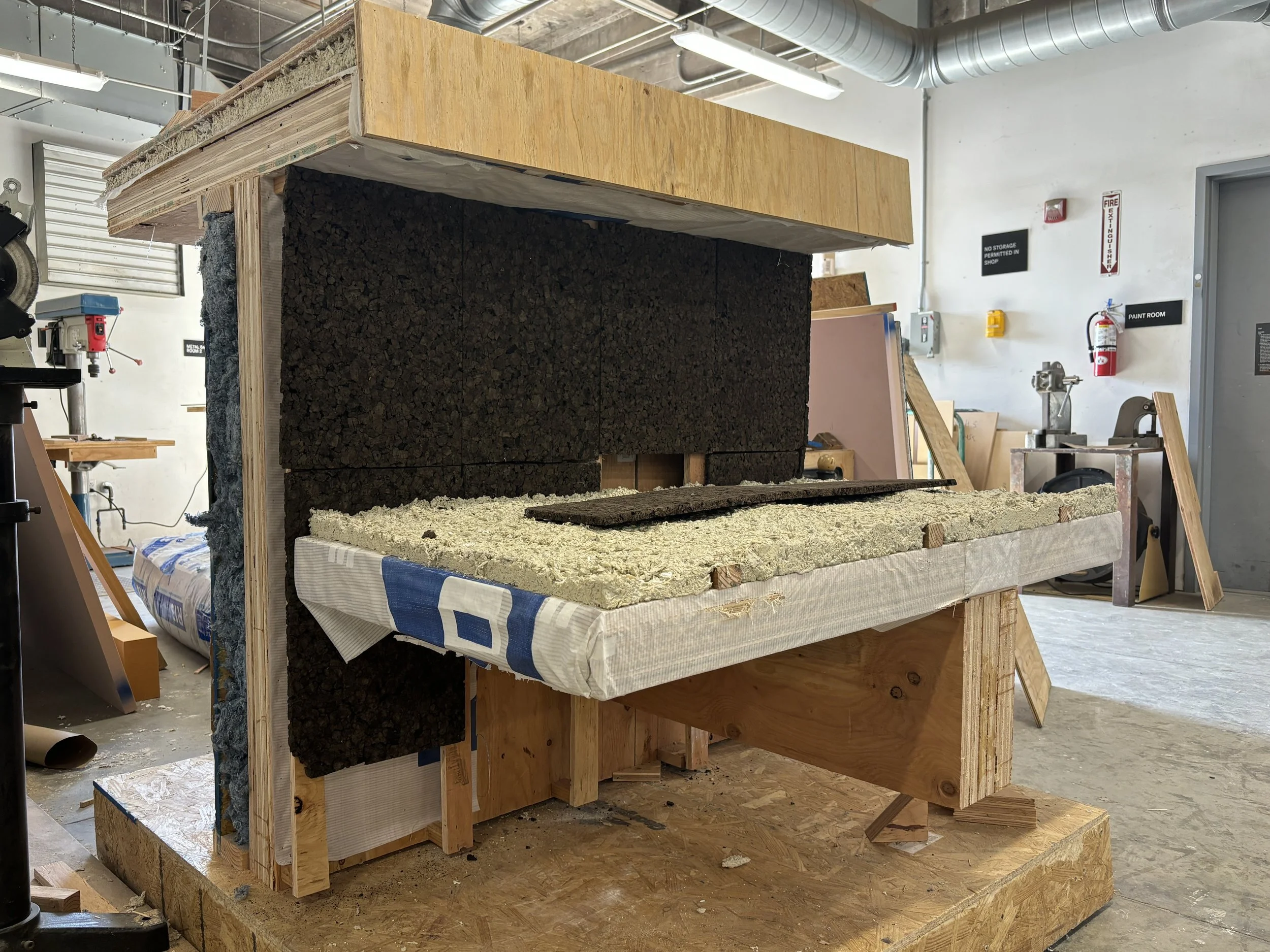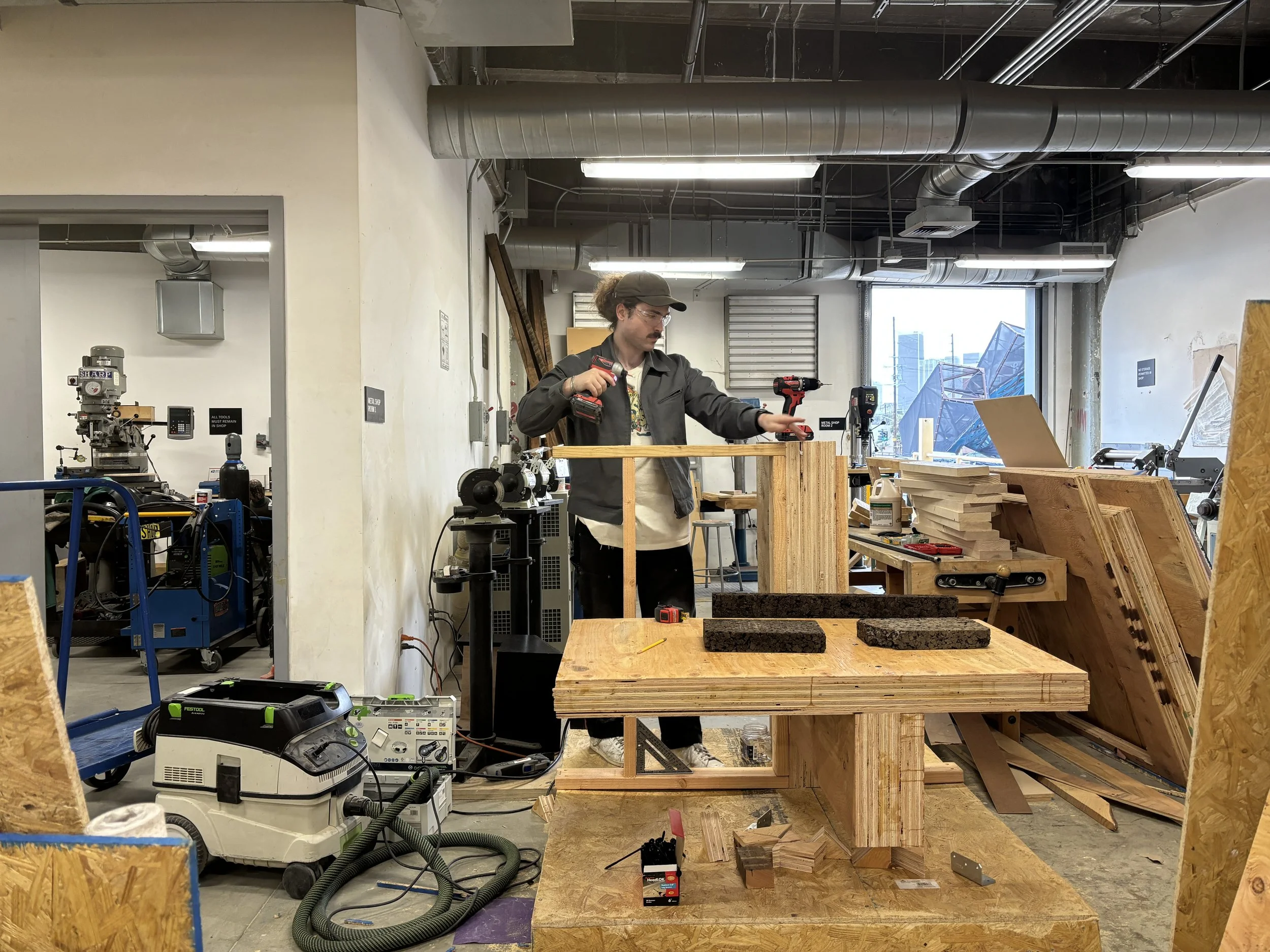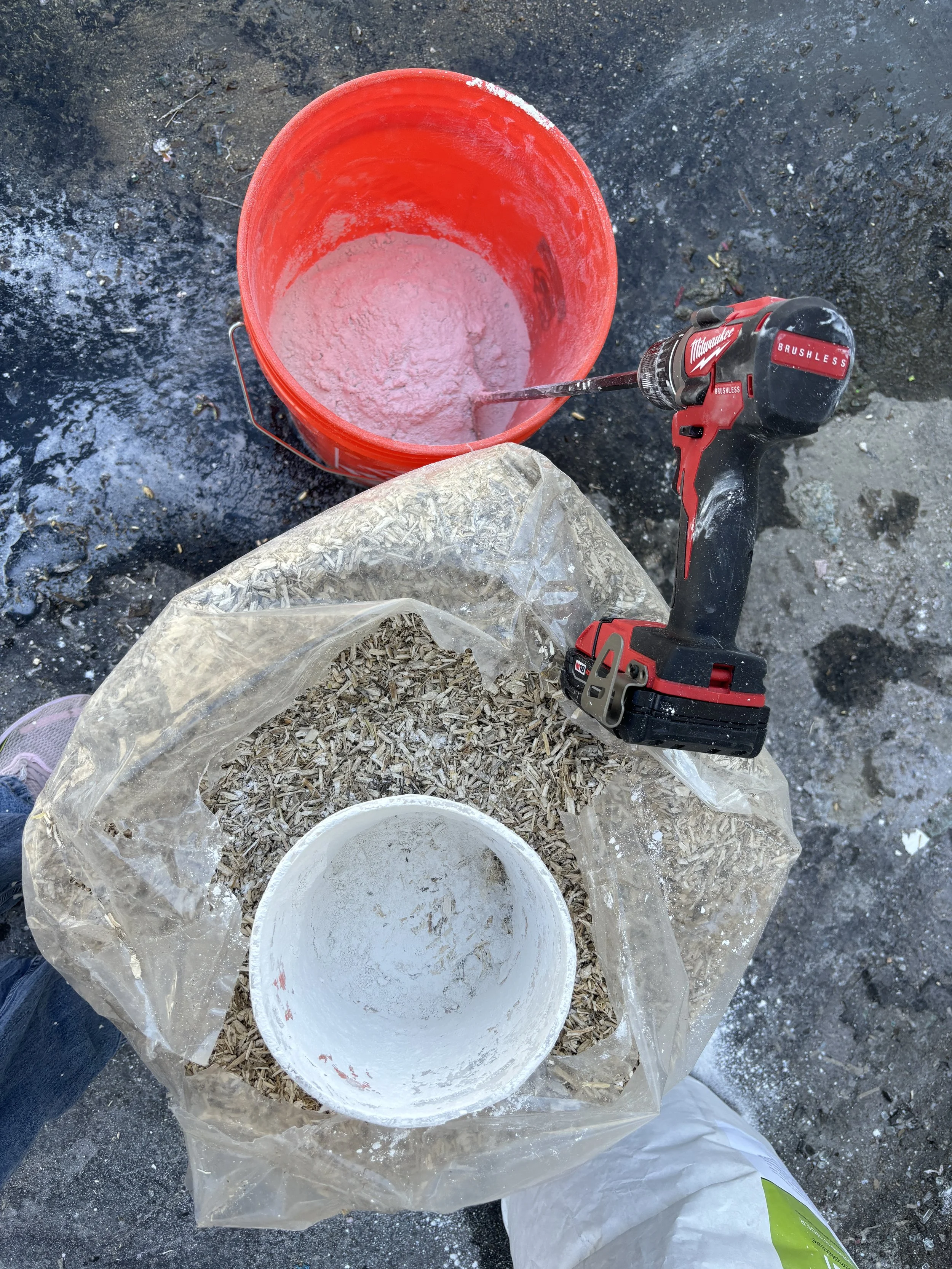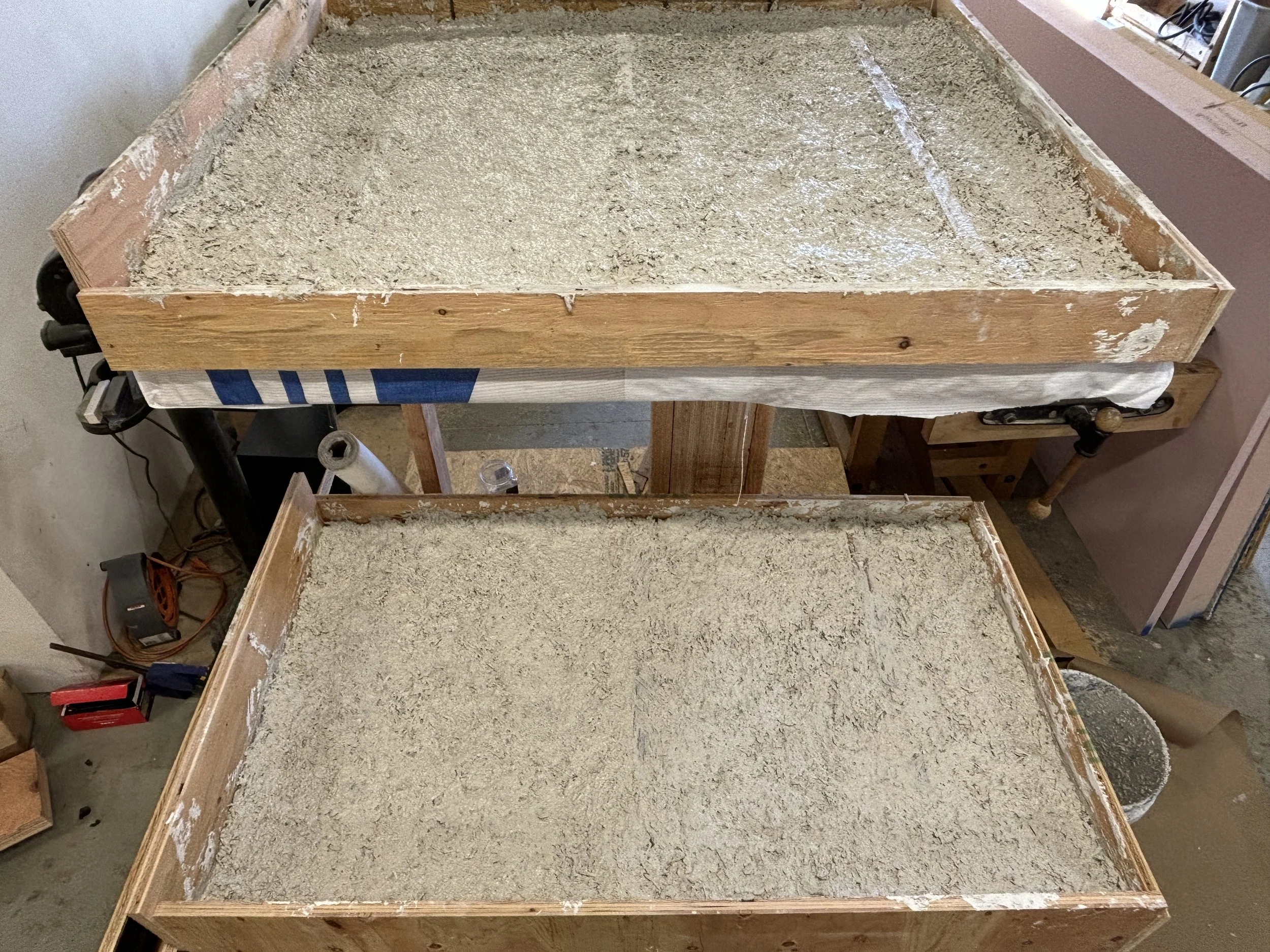
negative MASSBio-based Construction
Category- MS Architectural technologies
Location- SCI-Arc, Los Angeles, CA
Year- LA Covers seminar, Spring 2025
Type- Collaboration with Chuwei Ni, Sebastian McAnulty
Starting with analytical studies of the original construction, the project progressed through material research and the design of a carbon-conscious assembly that preserves spatial clarity and structural logic. This prototype revisits a fragment of Rudolf Schindler’s Lovell Beach House, rearticulating its modernist logic through a contemporary lens of low-carbon construction and regenerative materiality. The original concrete frame is replaced with a mass plywood structural system, significantly reducing embodied carbon while maintaining the spatial clarity characteristic of Schindler’s design. Walls are insulated with recycled denim, providing thermal resistance and acoustic buffering through the reuse of post-consumer fibers.

The facade is clad in cork, serving simultaneously as insulation and exterior finish, introducing a breathable, renewable envelope. Underfoot, hemp insulation supports thermal comfort and humidity regulation. Each component is selected for its low environmental impact and capacity for disassembly, enabling future reuse or biodegradation. By substituting conventional materials with bio-based alternatives—cork, hemp, denim—the assembly achieves a substantial reduction in embodied energy. Improved U-values and minimized thermal bridging enhance performance while reinforcing the project’s ecological agenda. The result is a material reinterpretation of a modernist icon, calibrated for the demands of a warming world.






Studio Instructor-
Maxi Spina
